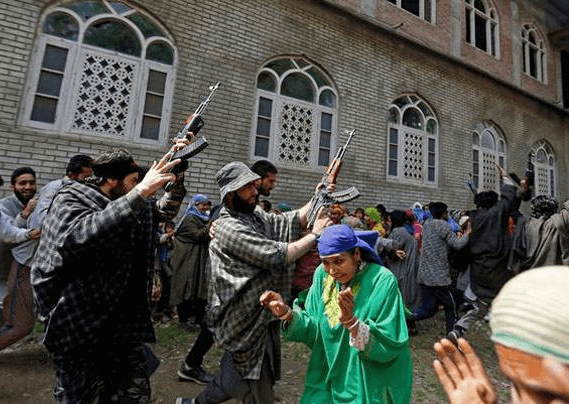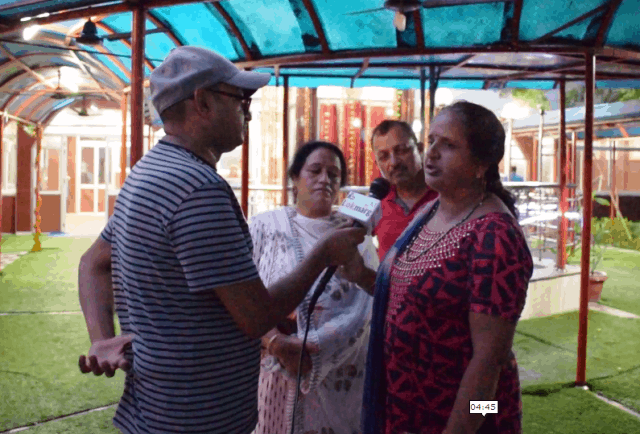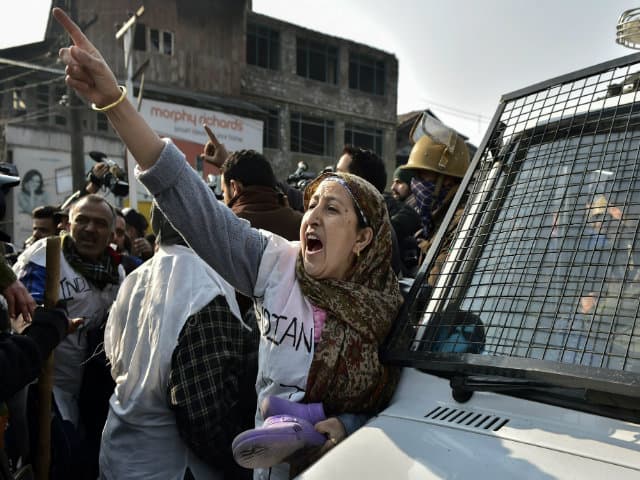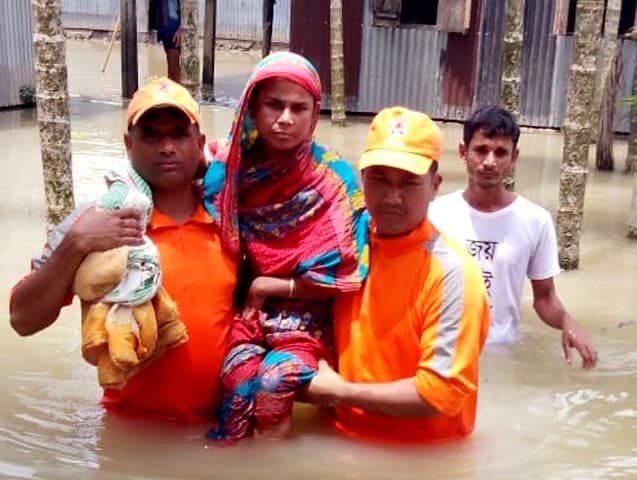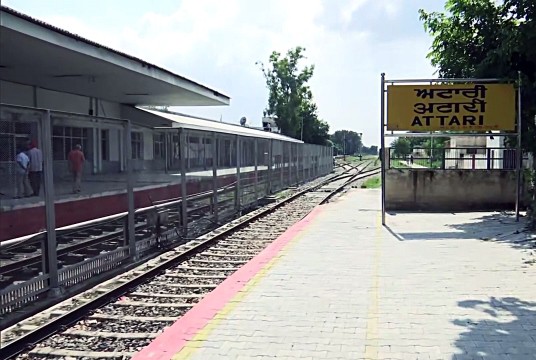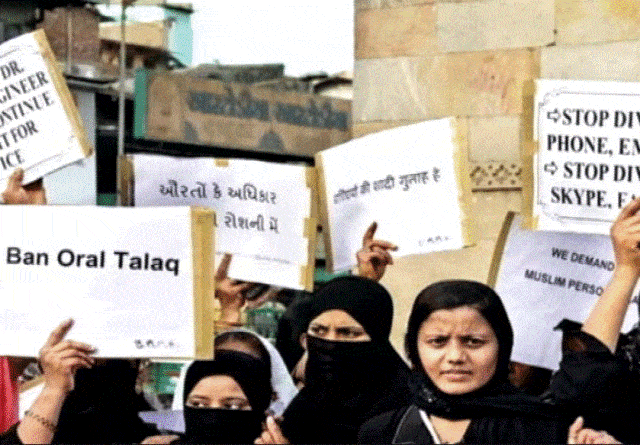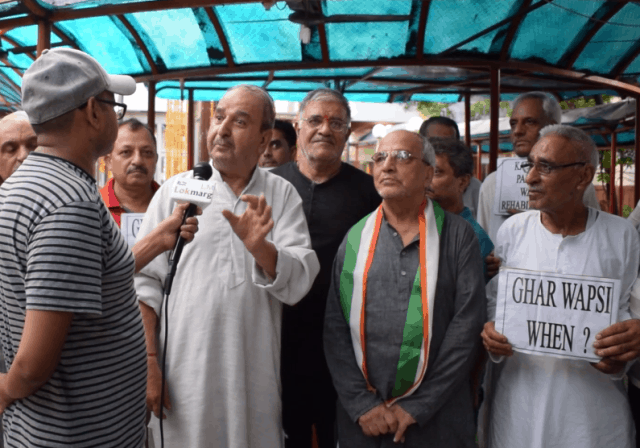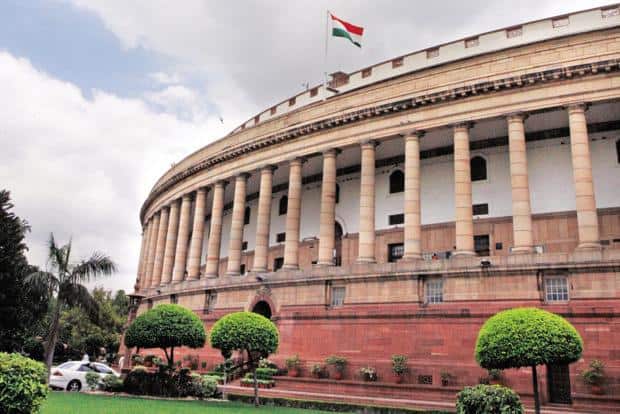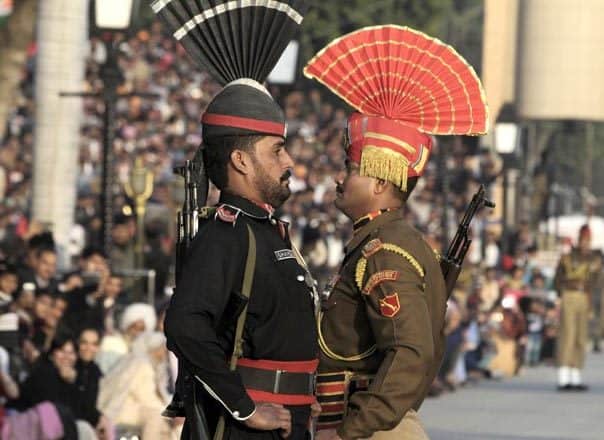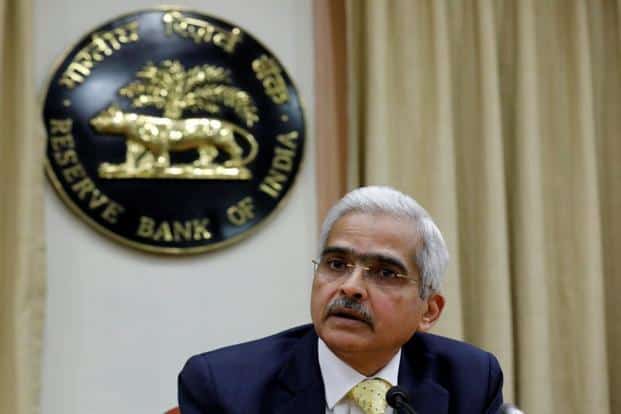Muscular nationalism is Prime Minister Narendra Modi’s USP. That policy has paid rich dividends to his party. Some would say the Uri surgical attack and the Balakot air strike, were responsible for the BJP’s comprehensive 2019 election victory.
Buoyed by the success, the government has now scrapped Article 370, and stripped Kashmir of the special status it enjoyed since 1947. Not just that, but the state has been bifurcated and made into two union territories. But, has Modi carried it too far this time? Will this bold act, hugely popular with the rest of the country, come to haunt the BJP in years to come? How this plays out in the valley and in the larger neighbourhood is yet to be determined.
Pakistan has expectedly reacted with shock and anger, calling it a violation of the UN resolution. Islamabad will mount an all-out diplomatic offensive against India. It has downgraded ties with New Delhi, asked Indian High Commissioner Ajay Bisaria to leave and suspended the Samjhauta Express. The little trade there was with India will also stop now. People in Punjab would be worried about what happens to the Kartarpur project, since the bilateral relations have reached such a low point. But that remains to be seen.
India has asked Pakistan to review its decision and said that it was done with an eye to grab international attention and present an “alarming picture to the world.’’ It is well known that the international community is concerned about a possible nuclear flash point in South Asia. Now more than ever, considering the rising tension between the two nuclear armed neighbours.
Islamabad has always maintained that Kashmir is a “disputed’’ territory and a solution to the problem must be worked out between India, Pakistan and the people of Kashmir. Prime Minister Imran Khan has predicted that the freedom movement will gain momentum in the valley. This is certainly a given considering that there has been no consultations with the people at all. Kashmir has also been in lock-down mode since Sunday.
Islamabad has already called for a meeting of the Organisation of Islamic Co-operation (OIC) to discuss the situation in Kashmir. The OIC will certainly issue a statement, but beyond that not much can be expected. India has worked on ties with both Saudi Arabia and the UAE, the prime movers of the group. The Gulf states are now engrossed with Iran, Yemen and Syria, in their immediate neighbourhood. The UAE has already backed India. “The reorganisation of states is not a unique incident in history of independent India and it was mainly aimed at reducing regional disparity and improving efficiency. It is an internal matter as stipulated by the Indian Constitution,” Dr Ahmad Al Banna, the UAE’s ambassador to India has said.
Pakistan will also take up Kashmir to the United Nations Security Council. The Human Rights Council in Geneva will also be approached. There will be a flurry of diplomatic activity with Islamabad possibly sending out envoys to world capitals to explain what India’s latest action means. Pakistan expects Kashmir to go up in flames but as of now the heavy military presence has ensured there are no protests in the valley.
Can Pakistan galvanise world opinion against India? Has Delhi handed over Kashmir in a platter to Pakistan? Can India get away with it at a time when each nation is looking out for itself and unlike in the past the liberal values — human rights and moral positions — are no longer at the core of international diplomacy. The liberal world is crumbling and the BJP government must have taken all this into account before going ahead with its latest Kashmir move.
It is but natural that Pakistan will play its Afghan card to the hilt. At a time when the US –Taliban talks have reached a crucial stage, Washington will not wish for distraction on the India-Pakistan front .Pakistan will let the US know that the situation in Kashmir would distract Islamabad and shift its focus from peace moves in Afghanistan to the India-Pakistan border.
PTI reported a State Department spokesman as saying: “The US is closely following India’s legislation regarding the new territorial status and governance of Jammu and Kashmir. We note the broader implications of these developments, including the potential for increased instability in the region.”
Hostile fire across the India-Pakistan border has continued unabated in the last few years. Tension between the nuclear armed neighbours is something Washington does not need at the moment. Prime Minister Imran Khan has already said that a terror strike in the valley now could even provoke a full scale war between the two arch rivals. This is something which will worry the Trump administration. President Donald Trump, facing elections next year wants a complete US troop pull- out before that. A military confrontation between India and Pakistan would be the last thing Washington wants at the moment when an agreement with the Taliban appears imminent. Perhaps with this in India, the US has said there was an “urgent need” for dialogue among all actors to reduce tensions and to avoid a potential military escalation in South Asia. Washington has also asked Pakistan to ensure that infiltration does not occur. This is to make sure that a military confrontation does not take place at this crucial juncture.
The US pointsman for Afghanistan, Ambassador Zalmay Khalilzad was in Delhi on Tuesday and briefed foreign minister Jaishankar on the Taliban talks. The Indian minister must have also given the envoy a briefing on India’s recent action regarding Kashmir. Little is known about the talks. From the photograph and relaxed body language of the two, the talks appear to have gone smoothly.
China has already expressed its concern about developments in Kashmir. It has questioned the bifurcation of Ladakh. “China is seriously concerned about the current situation in Kashmir,’’ went on to say that the issue is a legacy of history between India and Pakistan. In a separate statement, the Chinese foreign ministry reacted to India’s decision to create Ladakh as a Union Territory. “China always opposes India’s inclusion of Chinese territory in the western section of the China-India boundary under its administrative jurisdiction,” it said. “This position is firm and consistent and has never changed. The recent unilateral revision of domestic laws by the Indian side continues to undermine China’s territorial sovereignty, which is unacceptable.’’
The MEA has said that the re-organization of the state is India’s internal matter and reminded China that it did not comment on its domestic issues. China faces resistance from local Muslims in Xinjiang, from Dalai Lama’s followers in Tibet, as well as pro-democracy activists in Hong Kong.
With foreign minister S Jaishankar slated to visit China from the 11-13 of the month, this issue will come up for discussion. It is not yet certain how this will pan out with China. But with a trade war on with the US, President Xi Jinping has other more serious issues to worry over.
Two major regional players, Russia and Iran have not yet commented on the latest government move. The world’s appetite for liberation wars, or moral rights and wrongs are no longer as they were earlier. Pakistan’s own credibility is low. Considering all this, while there will be some amount of criticism of India’s actions in Kashmir and China will needle India with this whenever necessary, it will not abruptly overturn the gains of the Wuhan spirit.
More important perhaps is the internal dimensions of the new Kashmir policy. Kashmir valley can be held down by force but at a massive cost. Terrorist attacks will increase in the months and years to come. Hard core jihadi groups will mushroom across the state. The young people have demonstrated earlier how they can face the might of the Indian state. Stone throwing school children will perhaps now take up arms. Kashmiris will feel they have nothing to lose. Few in the valley believe that development will come to the state now that the contentious article 370 is out of the way.
AS Dulat, former RAW chief and the man late prime minister Vajpayee used to help the peace process said in a recent interview that Kashmiris have once again been let down by India. Pakistan will naturally take advantage and continue to stoke the fire. Keeping down a sullen alienated population will not be an easy task for India’s security forces.
]]>